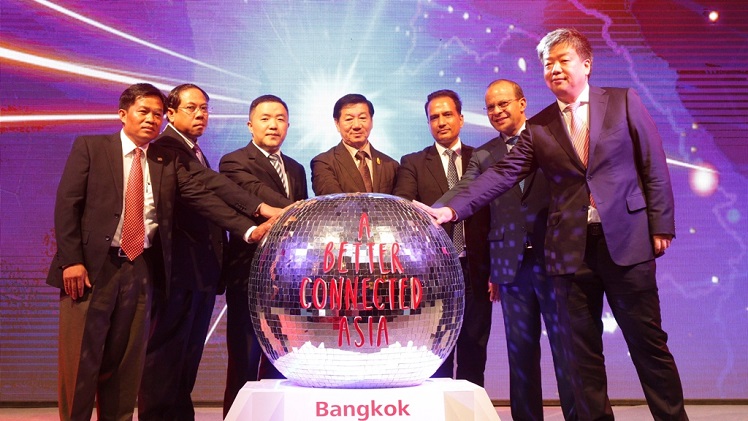[bsa_pro_ad_space id=1]
Huawei is a leading global information and communications technology (ICT) solutions provider whose aim is to build a better connected world, acting as a responsible corporate citizen, innovative enabler for the information society, and collaborative contributor to the industry. Founded in 1987, Huawei is a private company fully owned by its employees.
Driven by customer-centric innovation and open partnerships, Huawei has established an end-to-end ICT solutions portfolio that gives customers a competitive advantage in telecom and enterprise networks, devices and cloud computing. Huawei’s 170,000 employees worldwide are committed to creating maximum value for telecom operators, enterprises and consumers. Their ICT solutions, products and services are used in more than 170 countries and regions, serving over one-third of the world’s population.
At the first Asia Pacific Ultra-Broadband Summit hosted in Bangkok, Huawei and national regulatory agencies in Asia Pacific, International Telecommunication Union (ITU), major carriers and telecommunications industry partners including Light Reading, Heavy Reading, and Ovum, have agreed on the future direction of Ultra-Broadband development in Asia Pacific and its agenda to build a better connected Asia. The Summit serves as an important milestone for quick innovation and accelerated growth of the ultra-broadband market in the Asia Pacific region.
The rapid development of broadband applications has brought profound impact to the ways people work, live and play. Broadband is an integral part of life in today’s society. The demand for broadband further promotes overall development of fixed broadband infrastructure and ultra broadband has become a key investment priority for operators. As Huawei Global Connectivity Index pointed out, a 20 percent increase in ICT investment will grow GDP of a country by 1 percent. At a time where limitations of global resource have become a bottleneck for societal development, connectivity has become a key competitive advantage for markets.
ITU proposed the concept of Connect 2020 as a connectivity development goal, which aims to connect 55 percent of home users and achieve 90 percent coverage in remote areas by 2020. At the Summit, a number of Southeast Asian regulators agree that the local governments should introduce relevant policies to facilitate a healthy industry environment, encourage investment and promote fixed broadband infrastructure development.
The continuous development of operator networks is driven by increasing demands for high Internet speed and high definition video. Asia Pacific operators have explored and contributed significantly to fixed broadband development by fostering convergence of fixed and mobile broadband. They have also driven business growth and content and network integration by promoting cooperation between operators and OTT. As the bearer network of broadband applications, fixed broadband becomes core competitiveness of operators.
Adhering to the concept of UBB 2020, Huawei is committed to exploring the potential of ultra-broadband networks. Through innovations in our Gigaband, FMC 2.0, on-demand network and many more solutions, Huawei has played a key role in helping operators make successful transitions in ultra-broadband network and business strategy.






GIPHY App Key not set. Please check settings